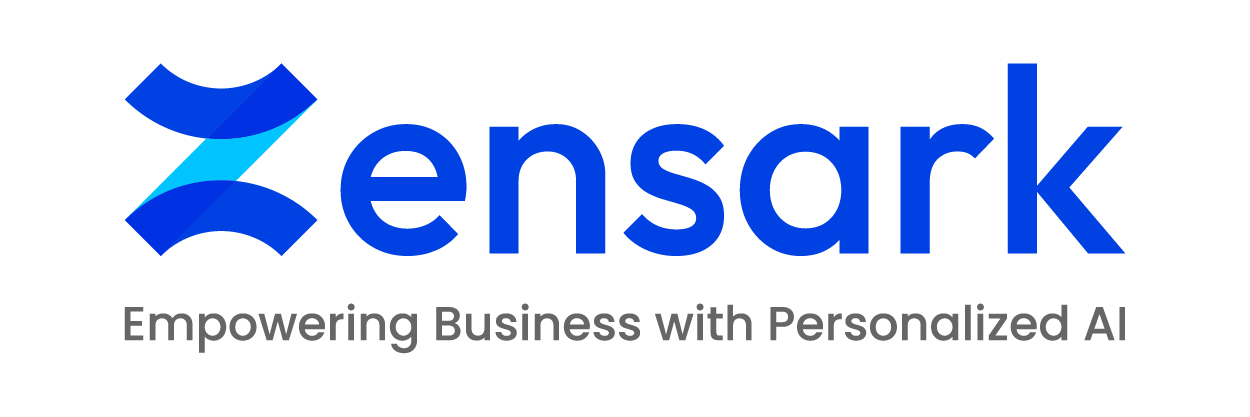Personalized Candidate Matching: How Generative AI Makes Recruitment Easier
Zensark AI Division
May 30, 2024


How AI Looks at Candidate Profiles
Skill Analysis: AI examines resumes and online profiles to identify skills and qualifications. It understands different levels of expertise and how relevant these skills are to the job.

Experience Overview: AI reviews the candidate’s work history to see how their past roles and responsibilities align with the job they’re applying for.
Cultural Fit: AI can pick up on soft skills and cultural indicators, like leadership and teamwork, to see if the candidate will fit well with the company’s culture.
How AI Understands Job Descriptions
Context Matters: AI reads job descriptions to understand what the role is really about, including the required skills and level of seniority.
Skill and Experience Matching: AI extracts the essential skills and experiences from the job description, prioritizing what’s most important for the role.

Cultural Indicators: AI also looks for cultural clues in the job description, like whether the company values collaboration or fast-paced work environments, to find candidates who will thrive there.
The Matching Process
Advanced Algorithms: AI compares the data from candidate profiles and job descriptions using complex algorithms. It looks at both the qualifications and the cultural fit.
Scoring and Ranking: Candidates are scored and ranked based on how well they match the job. The AI highlights the best fits.
Learning and Improving: AI systems learn from past matches to improve accuracy over time, making better and better recommendations.
Benefits for Everyone
- Speed and Efficiency: AI speeds up the screening process, helping companies fill positions faster.
- Better Matches: AI finds better fits, leading to happier employees and lower turnover.
- Learning & Improving: I think it is justified alignment whereas the above 2 bullet points are left aligned
- Insightful Data: Employers gain valuable insights into the talent market, helping them make strategic hiring decisions.
Real-World Applications
Imagine a tech company seeking a software engineer experienced in AI and machine learning. Traditional methods involve sifting through countless resumes manually, often leading to overlooked talents. However, with generative AI, the system quickly scans resumes, identifying candidates with the right technical skills and relevant project experience, even analyzing contributions to open-source projects or professional networks to gauge expertise. The AI may uncover a candidate who not only meets technical requirements but also possesses leadership experience, fulfilling the company’s need for a potential future team lead. This holistic approach ensures the company finds a candidate who can grow and thrive within their organization.
The Future of AI in Recruitment
As AI technology continues to evolve, its role in recruitment is expected to expand and become even more sophisticated. Here are some ways the future might look:
Hyper-Personalization: Future AI systems will provide even more personalized candidate experiences, offering tailored job recommendations, personalized application feedback, and AI-driven career coaching. This level of personalization enhances candidate engagement and satisfaction.

Predictive Analytics: AI will become better at predicting job success. By analyzing vast amounts of data from past hires, AI can identify patterns that indicate a high likelihood of success in specific roles. This can help companies make more informed hiring decisions and reduce the risk of bad hires.
Real-Time Matching: With advancements in AI, real-time matching will become a reality. As soon as a job opening is posted, AI can instantly match it with the best candidates from the database, significantly reducing the time-to-hire.
Bias Reduction: AI has the potential to reduce human biases in the recruitment process. Future AI systems can be designed to detect and mitigate biases, ensuring a fairer and more inclusive hiring process. This can help companies build more diverse and equitable workplaces.
Integration with Other Technologies: AI is expected to integrate seamlessly with HR technologies like applicant tracking systems (ATS), human resource information systems (HRIS), and performance management systems, offering a comprehensive view of the employee lifecycle from hiring to retention.
Global Talent Pool: AI enables companies to access a global talent pool by analyzing candidate profiles worldwide, irrespective of geographical boundaries. This capability is especially advantageous for remote and distributed teams.
Conclusion
Generative AI is making recruitment smarter and more efficient. By analyzing candidate profiles and job descriptions in detail, it ensures better matches, benefiting both candidates and employers. As AI technology continues to improve, the future of hiring looks bright, with more accurate and satisfying matches for everyone involved.
The evolution of AI in recruitment promises a future where the hiring process is faster, fairer, and more tailored to individual needs. By embracing these advancements, staffing companies can stay ahead of the curve, ensuring they continue to attract and retain top talent in an increasingly competitive job market. The future of recruitment is here, and it’s powered by AI.
